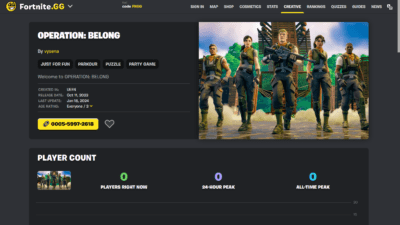“Catch-22”: Campaigners launch legal battle with MoD over recruitment of minors
Child Soldiers International press release
• Campaigners lodge claim for judicial review of “Catch-22” rules, which force youngest recruits to serve for longest
• New poll: public support for raising armed forces’ enlistment age to 18 continues to grow
Child Soldiers International today launched a claim for judicial review of the terms of enlistment of minors joining the Army. If successful, the claim would reduce by up to two years the minimum service period of those signing up under the age of 18.
Although minors have a right to be discharged before their 18th birthday, after this point the so-called “Catch-22” clause commits them to serve until they are at least 22 years old, regardless of their age when they joined. This means the youngest recruits have to serve for longest – 16-year-old recruits have a total minimum service period of six years, while 17-year-olds must serve for five. In contrast, adults can be discharged after just four years’ service. Lawyers acting for the campaign group claim this constitutes unlawful age discrimination in employment conditions, and violates the Equal Treatment Directive 2000/78/EC.
The legislation being challenged (the Army Terms of Service Regulations 2007, as amended) and similar previous legislation has been strongly criticised for over 20 years by parliamentary bodies including the Armed Forces Bill Select Committee and the Joint Committee on Human Rights. The UN Committee on the Rights of the Child has also called for this legislation to be amended. However, this is the first time the legislation has been challenged in the courts.
“There is overwhelming public support in this country for a minimum enlistment age of 18. But whatever you think the right age is for joining the Army, nobody can justify forcing the youngest recruits to serve for longer than their adult counterparts. It’s unfair, unnecessary and – we believe – unlawful”, said Richard Clarke, Director, Child Soldiers International. “It’s essential to remember that many of these young soldiers will be forced to put their lives on the line against their will during those two extra years, all because of a decision they made at 16 and later regretted. We think it is highly unethical for the MoD to exploit young recruits in this way.”
David Gee, who runs “Before You Sign Up” – a website informing armed forces personnel and potential recruits of their rights – believes hundreds of young soldiers who want to leave the Army are forced to stay against their will each year as a result of the unfair rules. “I receive enquiries from deeply distressed young soldiers and their families about this issue. The lucky ones may find a sympathetic commanding officer who will find a way out for them, but others are trapped or have to resort to illicit means of leaving the Army such as going AWOL or committing drug offences. Of course, being discharged in this way will have negative consequences for their future civilian employment prospects”, he said.
The Bishops of the Church in Wales and the Church of Scotland spoke out last year against the armed forces’ ongoing recruitment of minors. They joined the growing number of organisations and individuals who have voiced concerns about the policy, including parliament’s own Defence Committee and former Minister for the Armed Forces, Sir Nick Harvey MP. A nationwide poll conducted in July 2014 by Ipsos MORI on behalf of the Joseph Rowntree Reform Trust Ltd found that 78 per cent of respondents who expressed a view thought the minimum enlistment age for the Army should be 18 or above, an increase of eight points compared to an identical poll conducted in April 2013.
Child Soldiers International is represented in the proceedings by Jamie Beagent of Leigh Day solicitors and David Wolfe QC of Matrix Chambers. Jamie Beagent, Partner at Leigh Day, said: “Whatever your views on the recruitment of under 18’s to the armed forces, these soldiers should not be treated differently to adult recruits where there is no functional justification for this discriminatory treatment. The Army is out on a limb on this, with the other armed services having abolished this discriminatory policy several years ago. We hope that by bringing this legal challenge, Child Soldiers International will help to end this unjustifiable discrimination.”
Notes for Editors
1. Child Soldiers International is an international human rights research and advocacy organisation seeking to end the military recruitment and the use in hostilities, in any capacity, of any person under the age of 18. www.child-soldiers.org.
2. The UK is now one of just 17 countries in the world that enlists from the age of 16. The other countries which do so are: Bangladesh, El Salvador, Guyana, India, Iran, Jordan, Kenya, Mauritania, Mexico, North Korea, Pakistan, Papua New Guinea, Singapore, Tonga, Trinidad and Tobago, and Zambia. Guinea-Bissau, which had also previously enlisted at 16, officially raised its enlistment age to 17 in September this year. Canada and France accept 16-year-olds into military academies to study prior to commencing a career in the armed forces at the age of 17.
3. In 2013, Child Soldiers International and ForcesWatch jointly published research which demonstrated that the risk of fatality in Afghanistan for recruits who enlisted in the British Army aged 16 and completed training was twice as high as for those who enlisted aged 18 and above. This is believed to be due to the disproportionately high number of 16-year-olds who join frontline Infantry roles, together with the longer average career length of minors who complete training. See Child Soldiers International / ForcesWatch, “Young age at army enlistment associated with greater war zone risks”, August 2013. Available at http://www.child-soldiers.org/research_report_reader.php?id=699
4. In 2001, the RAF, Royal Marines and Navy – which had previously operated the same discriminatory terms for minors – amended their rules to ensure that adults and minors had equal terms of service. Only the Army continues to impose longer minimum service periods on its youngest recruits.
5. A nationwide poll conducted in July 2014 by Ipsos MORI on behalf of the Joseph Rowntree Reform Trust Ltd found that 78 per cent of respondents who expressed a view thought the minimum enlistment age for the Army should be 18 or above. Just 14 per cent of respondents thought the minimum age should be 16 or less. An identically worded poll conducted in April 2013 by ICM found 70 per cent of respondents who expressed a view thought the minimum enlistment age should be 18 or above, with 20 per cent supporting 16 or younger. Copies of the full poll results available on request from Child Soldiers International.
6. According to the latest MoD figures available, Child Soldiers International and ForcesWatch have calculated that enlisting minors costs the Army approximately £50m more each year than enlisting only recruits aged 18 and above. This is due to the higher initial training costs relating to minors, and their increased drop-out rate. For full details and calculations see Child Soldiers International / ForcesWatch “Army recruitment: comparative cost-effectiveness of recruiting from age 16 versus age 18”, September 2014. Available at http://www.child-soldiers.org/research_report_reader.php?id=781.
7. Organisations which have supported calls for the enlistment age to be raised to 18 include: the Children’s Rights Alliance for England, UNICEF-UK, Children in Scotland, Together (Scottish Alliance for Children’s Rights), the NUT, Veterans for Peace, Quaker Peace and Social Witness, the Church of Scotland, the Bishops of the Church in Wales, General Assembly of Unitarian and Free Christian Churches, Pax Christi, Methodist Peace Fellowship, and the Baptist Peace Fellowship.
See more: recruitment age, terms of service, Child Soldiers International










